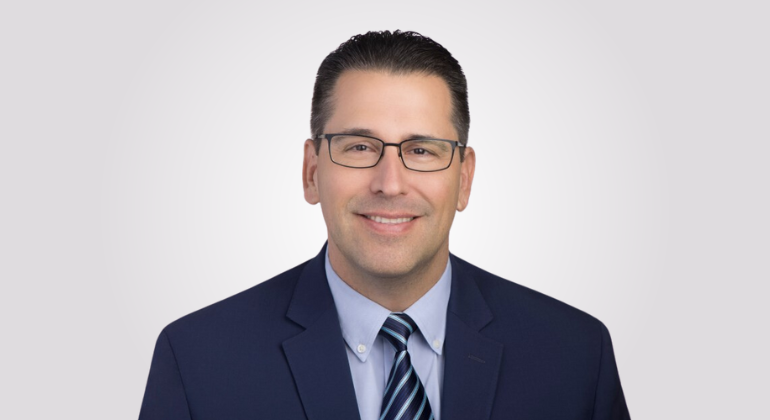Mount Sinai Receives $3.8 Million Grant to Study New Synthetic Drugs and Opioid Overdoses in Emergency Departments to Prevent Deaths
Funding from the National Institutes of Health will help toxicologists better understand these newly emerging drugs and associated overdose cases

Alex Manini, MD, MS, Professor of Emergency Medicine at the Icahn School of Medicine at Mount Sinai, and Director of Mount Sinai’s Center for Research on Emerging Substances, Poisoning, Overdose, and New Discoveries will lead the study on overdose cases involving synthetic opioids
The Icahn School of Medicine at Mount Sinai has been awarded a $3.8 million grant from the National Institute on Drug Abuse, a division of the National Institutes of Health, to study drug overdose cases linked to novel synthetic opioids. This work will help Emergency Department physicians better identify what substances people have taken, the severity of the overdose, and the best treatments to use in cases involving previously unknown or emergent drugs. This grant will be disbursed over five years.
“Front-line doctors urgently need better tools and information to manage overdose cases, especially involving synthetic drugs. Our study will give them real-time data and insights from across the country, so they can deliver faster, more accurate care,” says Principal Investigator Alex Manini, MD, MS, Professor of Emergency Medicine at the Icahn School of Medicine at Mount Sinai, and Director of Mount Sinai’s Center for Research on Emerging Substances, Poisoning, Overdose, and New Discoveries. “This work will help emergency providers identify what substances people have taken, how serious the situation is, and what treatments are most likely to save lives, especially in overdose cases involving unknown or newly emerging drugs.”
The country’s opioid epidemic is expanding, with drug overdose deaths doubling from 2015 to 2023. For the first time ever, drug overdose deaths surpassed 108,000 in the United States in 2023, and more than 70 percent of these cases involved an opioid. The opioid epidemic costs the United States more than $1 trillion every year and accounts for nearly 3 million Emergency Department visits annually.
Initially, most illicit opioid overdoses were linked to heroin, but the changing face of global drug commerce introduced synthetic opioid fentanyl analogues into the drug supply. Now, these drugs have far surpassed heroin as the primary cause of overdose deaths. These highly potent novel synthetic opioids, along with psychoactive adulterants, are now commonly detected in the illicit opioid supply within the United States, creating a toxic drug supply with new drugs that most clinicians have never heard of. As a result, when patients overdose on these novel drugs, it is challenging for physicians to identify them in their system or to find the most effective treatment. Naloxone, which rapidly reverses the effects of opioid overdose, is typically used in emergency rooms in these cases, but doctors have concerns that it may take more naloxone to reverse the effects of these new opioids, and new adulterants may not respond to naloxone.
This new study aims to answer questions involving synthetic opioids. Mount Sinai will lead the research, which involves 10 high-volume hospital systems across the United States that are part of the national Toxicology Investigators Consortium, a division of the American College of Medical Toxicology created to detect new and emerging drugs of abuse, adverse effects of new medications in the post-marketing phase, and emerging toxicological threats.
During the study, patients who arrive at emergency departments with opioid overdose will be studied in terms of their course of illness, confirmation of ingested substances, clinical risk factors, and treatment needs. Toxicologists will use state-of-the-art technology to conduct molecular identification to confirm if novel fentanyl analogs, adulterants, and nitazenes - opioids that are more potent than fentanyl, and increasingly identified in the U.S. illicit opioid supply and undetectable by conventional fentanyl testing strips - are in their system. Researchers will also disseminate information regarding overdose outbreaks and trends to the public by partnering with the Centers for Disease Control and Prevention (CDC). They will update study results onto the CDC’s suspected opioid overdose dashboard.
“We aim to predict the effects of emerging synthetic opioids and get ahead of regional outbreaks, delivering timely alerts to doctors, public health agencies, and the public,” adds Dr. Manini. “When this study is complete, the field of drug abuse will be significantly advanced to allow prediction of medical consequences for thousands of victims of the U.S. opioid epidemic.”
About the Mount Sinai Health System
Mount Sinai Health System is one of the largest academic medical systems in the New York metro area, with 48,000 employees working across seven hospitals, more than 400 outpatient practices, more than 600 research and clinical labs, a school of nursing, and a leading school of medicine and graduate education. Mount Sinai advances health for all people, everywhere, by taking on the most complex health care challenges of our time—discovering and applying new scientific learning and knowledge; developing safer, more effective treatments; educating the next generation of medical leaders and innovators; and supporting local communities by delivering high-quality care to all who need it.
Through the integration of its hospitals, labs, and schools, Mount Sinai offers comprehensive health care solutions from birth through geriatrics, leveraging innovative approaches such as artificial intelligence and informatics while keeping patients’ medical and emotional needs at the center of all treatment. The Health System includes approximately 9,000 primary and specialty care physicians and 10 free-standing joint-venture centers throughout the five boroughs of New York City, Westchester, Long Island, and Florida. Hospitals within the System are consistently ranked by Newsweek’s® “The World’s Best Smart Hospitals, Best in State Hospitals, World Best Hospitals and Best Specialty Hospitals” and by U.S. News & World Report's® “Best Hospitals” and “Best Children’s Hospitals.” The Mount Sinai Hospital is on the U.S. News & World Report® “Best Hospitals” Honor Roll for 2025-2026.
For more information, visit https://www.mountsinai.org or find Mount Sinai on Facebook, Instagram, LinkedIn, X, and YouTube.